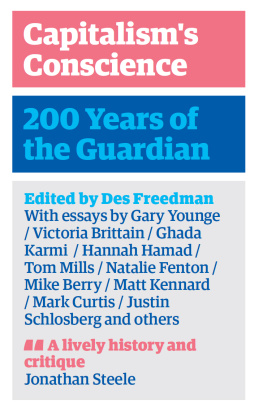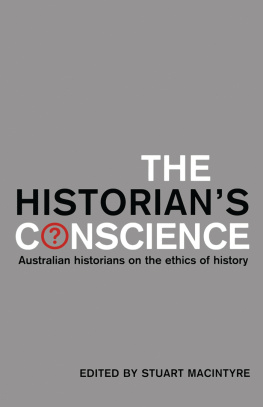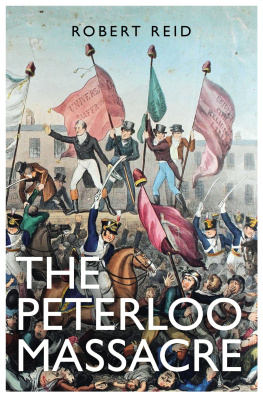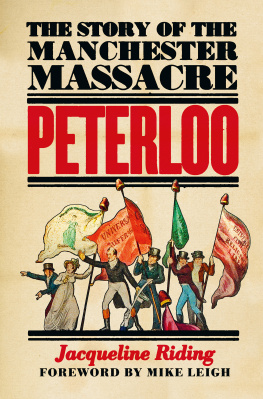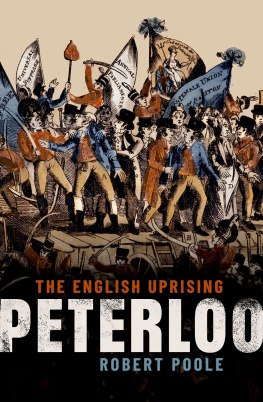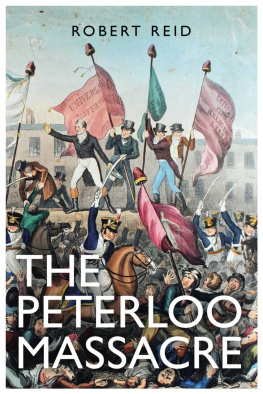Contents
Guide
Capitalisms Conscience
A lively and well-researched history and critique of Britains best newspaper, exposing the ideological contradictions and editorial tensions which generally keep the Guardian allied to a soft liberalism but shies away from radical or socialist answers to capitalisms recurring crises.
Jonathan Steele, former Chief Foreign Correspondent for the Guardian
Fascinating and timely.
Angela McRobbie, Professor of Communications at Goldsmiths, University of London
A page turner reveals the liberal establishment in all its ingloriousness, sprinkled with a few moments of integrity.
Beverley Skeggs, Professor, Sociology, Lancaster University
Capitalisms
Conscience
200 Years of the Guardian
Edited by Des Freedman

First published 2021 by Pluto Press 345 Archway Road, London N6 5AA
www.plutobooks.com
Copyright Des Freedman 2021
British Library Cataloguing in Publication Data
A catalogue record for this book is available from the British Library
ISBN 978 0 7453 4335 8 Hardback
ISBN 978 0 7453 4334 1 Paperback
ISBN 978 0 7453 4338 9 PDF
ISBN 978 0 7453 4336 5 EPUB
ISBN 978 0 7453 4337 2 Kindle
This book is printed on paper suitable for recycling and made from fully managed and sustained forest sources. Logging, pulping and manufacturing processes are expected to conform to the environmental standards of the country of origin.
Typeset by Stanford DTP Services, Northampton, England
Simultaneously printed in the United Kingdom and United States of America
Contents
Figures and Tables
FIGURES
TABLES
Introduction:
Just the Establishment?
Des Freedman
The Guardian is not a left-wing newspaper. It publishes left-wing columnists, is read by people on the left and has a reputation for identifying with left-wing positions. But it is not a title of the left; it is not affiliated to nor was it borne out of left-wing movements. It has never been a consistent ally of socialist or anti-imperialist voices and has failed to perform for the left what titles like the Mail and the Telegraph have done for their constituencies on the right.
Instead it is the home of a vigorous liberalism that consistently outrages voices to its right and, equally regularly, disappoints its critics on the left. If the Economist can be described as the lodestar That is why we describe it here as capitalisms conscience.
In May 2021, the Guardian turned 200. From its inception in Manchester in 1821 as a response to the murder of ordinary people by soldiers in the 1819 Peterloo Massacre to its historic identification with centrist and centre-left politics, the Guardian has remained a key institution for the definition and development of liberalism. The stereotype of the Guardianista, an environmentally conscious, Labour-voting, progressively minded public sector worker remains part of the popular mythology of British press history.
Yet the title has a complex lineage.
The Guardian advocated the abolition of slavery in the US, favoured Home Rule for Ireland, stood virtually alone in the national press in criticising the Boer War and exposing the existence of British concentration camps, backed womens suffrage, supported the Republican cause in the Spanish Civil War and opposed UK military intervention during the Suez crisis. While Friedrich Engels described it as the organ of the middle-class in his Conditions of the Working-Class in England, he was nevertheless heavily reliant on it as a source of data for his study of poverty in nineteenth-century Manchester. The Guardian has since published some of the most celebrated examples of investigative journalism, which in recent years include the breaking of the phone hacking story, Edward Snowdens revelations of US and UK surveillance programmes and the uncovering of the Windrush scandal in 2018.
On the other hand, the Guardian owes its existence to a cotton merchant determined to head off more radical ideas at the start of the Industrial Revolution. Some 40 years after its founding, it criticised Abraham Lincolns Emancipation Proclamation and refused to back Manchester cotton workers who, following Lincolns plea, were boycotting the raw cotton picked by US slaves. It condemned direct action taken by the suffragette movement, opposed the creation of the National Health Service, has at various times called for a vote for the Conservatives, Social Democrats and Liberal Democrats (rather than Labour), supported the First Gulf War and the NATO bombing of Yugoslavia and consistently denigrated Jeremy Corbyns leadership of the Labour Party between 2015 and 2020. It has both fiercely defended the need for fearless, independent journalism and handed over documents and hard drives to the authorities; it has carved out a niche for itself in the UK press market as an occasionally bold and angry voice but has also consistently diminished more radical projects to the left.
Its business model shows signs of some of the same contradictions. Following its origins in the Manchester business community, it was then controlled by a trust after 1936, and has therefore been partially protected from the proprietorial interference that its counterparts have
At the same time, it has ramped up its commercial orientation: the Scott Trust was wound up in 2008 and replaced by a private company, Scott Trust Ltd, with a mandate to secure its financial future in a much tougher marketplace. This has led to a series of commercial partnerships, rarely acknowledged openly, including 346 such relationships in 2014 alone and the creation of branded content opportunities through the Guardian Labs team together with extensive philanthropic partnerships with a range of individuals and foundations.
The current editor is aware of this complex history and acknowledges some of the missteps, as she describes them, in the papers record. Indeed, she admits that the newspaper began to drift from the political ideals that had inspired its founding after the death of its founder John Edward Taylor in 1844 and suggests that its support for the Confederates in the US Civil War marked a period of complacency that was out of kilter with its liberal origins. It has, she argues, not always lived up to its own values and its newsroom still falls short of the diversity necessary to truly serve a multicultural public. She has, however, promised that the title will now challenge the economic assumptions of the last three decades, challenge the powerful and use clarity and imagination to build hope.
This collection seeks to examine these claims and to contest the notion that the Guardian has ever been a reliable ally for the left. It is by no means a comprehensive overview of the Guardians history, journalism, business model or newsroom culture. It does not seek to emulate the official biographies that already exist: William Haslam Mills centenary book on The Manchester Guardian (with an introduction by the then editor C.P. Scott) and the subsequent volume by former Guardian journalist David Ayerst that was published on its 150th anniversary in 1971 (with copyright held by Guardian Newspapers Ltd). A third official biography is due to be published to coincide with the bicentenary but, in any case, our book is designed not to provide an impartial or disinterested overview of the

